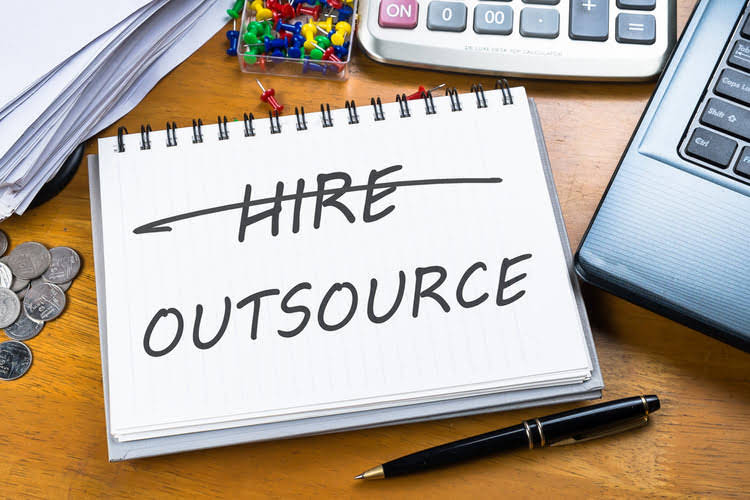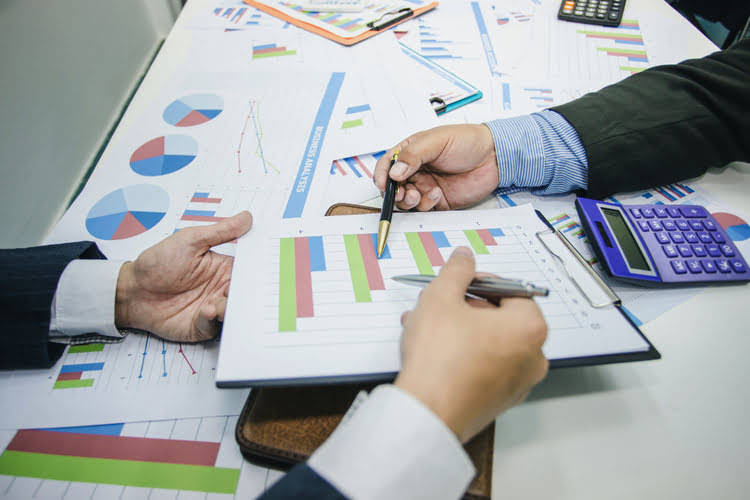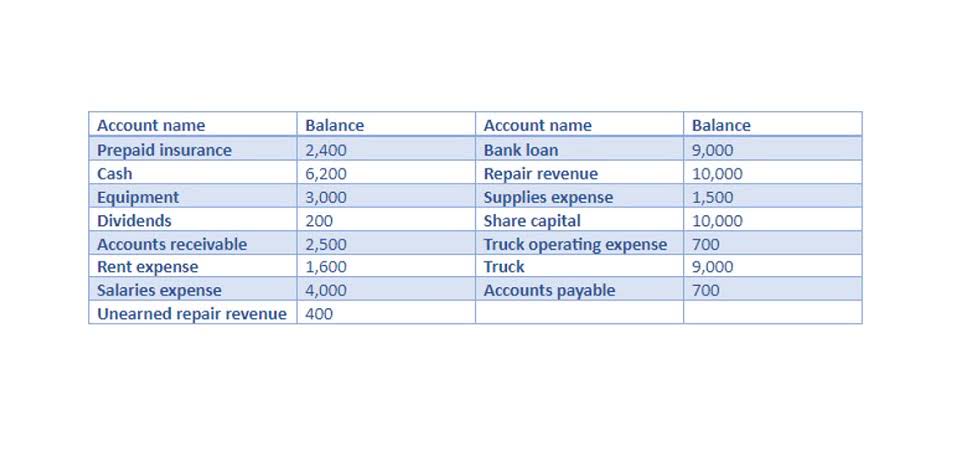
For blockchain in accounting businesses, this enhances data security and reduces the risk of fraud. Each transaction is visible to all authorized participants, and due to the immutable ledger, it cannot be manipulated once data is added. This makes blockchain an ideal solution for industries like banking or insurance, where preventing unauthorized access or modifications to transaction histories is paramount. By providing a transparent and secure record, blockchain significantly decreases the chances of financial fraud or data breaches. Blockchain is a decentralized digital ledger technology that records and verifies transactions in a secure, transparent, and immutable way. Unlike traditional databases that store information in a centralized location, blockchain organizes data into blocks linked chronologically to form a chain.

Coyyn.com Digital Money: Types, Uses, and Accounting Processes
- For industries governed by regulations such as the Sarbanes-Oxley Act, blockchain can streamline compliance and auditing processes.
- Our team of CPAs, budget analysts, auditors, and financial accountants utilize their extensive industry knowledge and advanced technologies to deliver well-optimized finance and accounting solutions.
- With blockchain in accounting, all transactions are recorded in real-time on a shared ledger, making verification instant and reducing the possibility of discrepancies.
- In contrast, blockchain accounting establishes trust through cryptographic proof and a shared, immutable ledger, minimizing reliance on intermediaries.
- This beginner’s guide will help you get to grips with the blockchain basics.
And because blockchain is decentralized, there’s no risk that practices would lose the information should a single organization or operator fail. Unlike a traditional ledger, blockchain isn’t owned by a single person or organization. The same ledger exists across multiple computers, and can’t be controlled by any single entity.
Navigating the new quality management standards: What your firm needs to know
Quantitatively, they must outline how blockchain transactions are measured and reported, including the valuation of digital assets and treatment of transaction fees. Incorporating transaction fees into financial statements requires careful classification. These fees should be recorded as part of the cost of goods sold or as operating expenses, depending on their nature and applicable accounting standards. For example, under International Financial Reporting Standards (IFRS), fees directly tied to production may be classified as direct costs, while incidental fees might be recorded as administrative expenses. This distinction is critical for accurate financial analysis and regulatory compliance. As with any new technology, CPAs will need to acquire new technical skills to process, review, and audit transactions in a blockchain, the details of which will depend upon the services provided.

Casper is a trusted blockchain specialist for accounting

Blockchain is the new buzzword of the accounting world — and for good reason. This in-depth guide will break these questions down and answer them in detail. Blockchain operating systems make transaction fees explicit and transparent, unlike traditional systems where fees are often bundled. Each transaction incurs a fee, such as the “gas fee” on platforms like Ethereum, compensating network validators. This allows accountants to track and allocate costs accurately for precise financial reporting and budgeting.
- Firms must be prepared for the potential impact on their accounting processes.
- Each block contains different transactions, and once a block is added to the chain, the information it holds cannot be altered without altering all subsequent blocks, making it tamper-proof.
- The food industry is increasingly adopting blockchain to track the path and safety of food throughout the farm-to-user journey.
- Accounting is a noticeable area for blockchain innovation due to the significant improvements it can present.
- This lack of clarity hinders firms from integrating blockchain solutions.
For tax and accounting professionals, understanding blockchain and cryptocurrency is not just beneficial—it’s becoming essential. This guide aims to provide you with a foundational understanding of blockchain and its implications for the accounting profession. The https://karaokeoscarvip.com/index.php/2022/06/30/top-9-rpa-use-cases-examples-in-finance/ adoption of blockchain technology along with artificial intelligence technologies and, more specifically, machine learning is happening at a fast rate.
- This level of transparency allows for more accurate audits, quicker reconciliation, and greater assurance that financial records are legitimate and reliable.
- Blockchain is a revolutionary technology transforming the accounting landscape.
- While the potential benefits of implementing blockchain in accounting are immense, there are also challenges that need to be addressed.
- However, the underlying technology is secure by design despite being part of various networks.
- This includes working with internal staff members and external consultants who have expertise in both accounting practices as well as blockchain solutions.
- The development of universally accepted standards will promote the seamless exchange of financial data, simplifying the process for multinational corporations and reducing the complexity of cross-border transactions.
What Does This Have To Do With the Accountancy Profession?
- Any attempt to modify a past transaction would change its hash, breaking the chain and signaling tampering.
- Industries such as finance, supply chain, and healthcare, which require stringent data security and transparency, are prime candidates for adopting blockchain in accounting.
- As a distributed and public ledger, blockchain benefits versatile fintech and business branches due to its possibility to record transactions that cannot be altered.
- In the rapidly evolving accounting landscape, staying ahead of technological advancements is crucial for maintaining a competitive edge.
- And in some ways this will be a tipping point for them to go into some of the other areas that Ron just mentioned.
- Professionals must focus on validating systems of governance, data security, and the integrity of blockchain-based platforms.
For example, Binance is based in Tokyo, Japan, while Bittrex is located in Liechtenstein. While there are many reasons for why an exchange would prefer to be based in one location over another, most of them boil down to business intricacies, and usually have no effect on the user of the platform. In layman’s terms, a cryptocurrency exchange is a place where you meet and exchange cryptocurrencies with another person. The exchange platform (i.e. Bybit) acts as a middleman – it connects you (your offer or request) with that other person (the seller or the buyer). With a brokerage, however, there is no “other person” – you come and exchange your crypto coins or fiat money with the platform in question, without the interference of any third party. When considering cryptocurrency exchange rankings, though, both of these types of businesses (exchanges and brokerages) are usually just thrown under the umbrella term – exchange.

What should accounting firms know about blockchain accounting?
The Big Four accounting firms are no slouches when it comes to blockchain accounting. Now that this cutting-edge technology is finally becoming mainstream, blockchain accounting programs, departments, and services are on the rise. More realistically, the use of blockchain technology can help reduce the number of third-party middlemen in many business transactions. Blockchain, on the other hand, removes the need for third-party auditors.
Blockchain Smart Contract Architecture
The intersection of blockchain and accountancy introduces a paradigm shift in how financial transactions are documented and verified. Traditional accounting systems rely heavily on centralized databases and manual reconciliation processes, often leading to errors, delays, and disputes. In contrast, blockchain technology offers an innovative solution by providing a transparent, tamper-proof, and distributed ledger that enhances the accuracy and efficiency of accounting practices. Using specialized blockchain accounting software is crucial https://www.bookstime.com/articles/how-to-prevent-duplicate-payments for modern accountants. These tools provide the necessary functionality to handle the complexities of digital assets.
Auditors can independently and efficiently validate transactions and financial data, reducing the time and resources required for audits. This ease of verification not only enhances audit efficiency but also strengthens compliance efforts and fosters trust in financial reporting accuracy. Beyond financial transactions, blockchain excels in tracking the ownership of assets, be they physical or digital.
